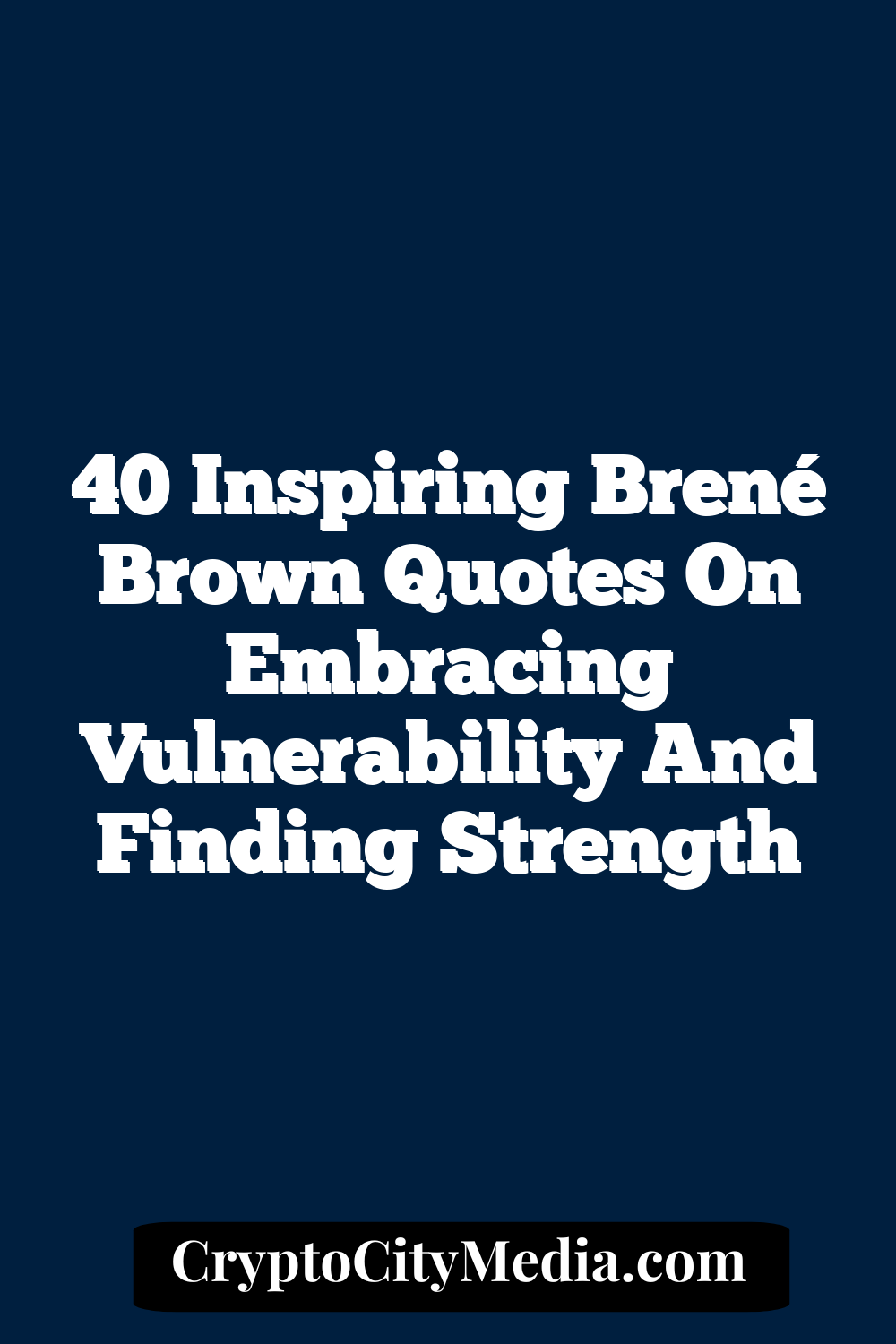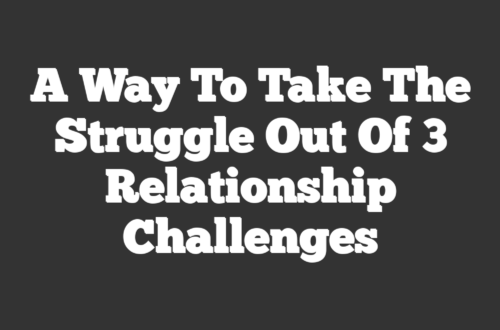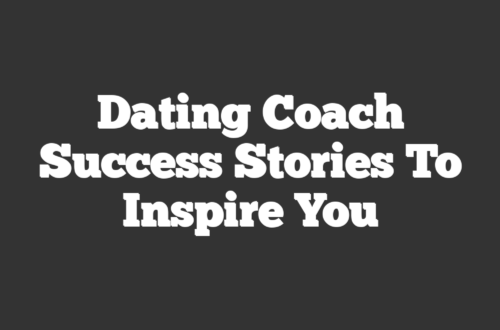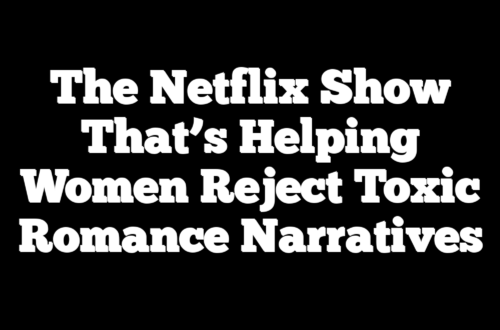
Brené Brown has become a household name when it comes to discussions on vulnerability, courage, and resilience. Her powerful insights have transformed countless lives, pushing people to embrace their imperfections and stand tall in their authenticity. With a blend of humor, research, and relatability, Brown’s work has redefined how we understand bravery and connection, challenging us to show up and live wholeheartedly.
This post brings together 40 of Brené Brown’s most inspiring quotes, each filled with wisdom to help you embrace vulnerability, find strength in imperfections, and lead a life of greater connection.
Who is Brené Brown?
Brené Brown is a research professor, author, and speaker whose work centers on courage, vulnerability, shame, and empathy. She gained widespread recognition with her TED Talk, The Power of Vulnerability, one of the most-viewed TED Talks worldwide. Brené has since written numerous bestsellers, including Daring Greatly, Braving the Wilderness, and The Gifts of Imperfection. Her research and storytelling have empowered people globally to cultivate emotional resilience and embrace their whole selves.
Brené Brown’s work emphasizes the power of vulnerability as a path to connection and courage, challenging societal norms that equate vulnerability with weakness. By revealing her own stories and struggles, she encourages people to pursue an authentic life where imperfections are met with compassion and strength.
Brené Brown Quotes
- “Owning our story can be hard but not nearly as difficult as spending our lives running from it. Embracing our vulnerabilities is risky but not nearly as dangerous as giving up on love and belonging, and joy—the experiences that make us the most vulnerable. Only when we are brave enough to explore the darkness will we discover the infinite power of our light.”―
- “We cultivate love when we allow our most vulnerable and powerful selves to be deeply seen and known and when we honor the spiritual connection that grows from that offering with trust, respect, kindness, and affection. ”―
- “Authenticity is a collection of choices that we have to make every day. It’s about the choice to show up and be real. The choice to be honest. The choice to let our true selves be seen.”―
- “You are imperfect, you are wired for struggle, but you are worthy of love and belonging.”―
- “I define connection as the energy that exists between people when they feel seen, heard, and valued; when they can give and receive without judgment; and when they derive sustenance and strength from the relationship.”―
- “Courage starts with showing up and letting ourselves be seen.”―
- “Because true belonging only happens when we present our authentic, imperfect selves to the world, our sense of belonging can never be greater than our level of self-acceptance.”―
- “Vulnerability sounds like truth and feels like courage. Truth and courage aren’t always comfortable, but they’re never weakness.”―
- “Vulnerability is the birthplace of love, belonging, joy, courage, empathy, and creativity. It is the source of hope, empathy, accountability, and authenticity. If we want greater clarity in our purpose or deeper and more meaningful spiritual lives, vulnerability is the path.”―
- “If we can share our story with someone who responds with empathy and understanding, shame can’t survive.”―
- “We cannot selectively numb emotions, when we numb the painful emotions, we also numb the positive emotions.”―
- “The dark does not destroy the light; it defines it. It’s our fear of the dark that casts our joy into the shadows.”―
- “Understanding the difference between healthy striving and perfectionism is critical to laying down the shield and picking up your life. Research shows that perfectionism hampers success. In fact, it’s often the path to depression, anxiety, addiction, and life paralysis.”―
- “If you trade your authenticity for safety, you may experience the following: anxiety, depression, eating disorders, addiction, rage, blame, resentment, and inexplicable grief.”―
- “Perfectionism is a self-destructive and addictive belief system that fuels this primary thought: If I look perfect and do everything perfectly, I can avoid or minimize the painful feelings of shame, judgment, and blame.”―
- “Shame corrodes the very part of us that believes we are capable of change.”―
- “Faith is a place of mystery, where we find the courage to believe in what we cannot see and the strength to let go of our fear of uncertainty.”―
- “When I look at narcissism through the vulnerability lens, I see the shame-based fear of being ordinary. I see the fear of never feeling extraordinary enough to be noticed, to be lovable, to belong, or to cultivate a sense of purpose.”―
- “To love someone fiercely, to believe in something with your whole heart, to celebrate a fleeting moment in time, to fully engage in a life that doesn’t come with guarantees – these are risks that involve vulnerability and often pain. But, I’m learning that recognizing and leaning into the discomfort of vulnerability teaches us how to live with joy, gratitude and grace.”―
- “When we fail to set boundaries and hold people accountable, we feel used and mistreated. This is why we sometimes attack who they are, which is far more hurtful than addressing a behavior or a choice.”―
- “Healthy striving is self-focused: “How can I improve?” Perfectionism is other-focused: “What will they think?”―
- “What we know matters, but who we are matters more.”―
- “Imperfections are not inadequacies; they are reminders that we’re all in this together.” ―
- “I now see how owning our story and loving ourselves through that process is the bravest thing that we will ever do.”―
- “Nostalgia is also a dangerous form of comparison. Think about how often we compare our lives to a memory that nostalgia has so completely edited that it never really existed.”―
You may also like:
50 Inspiring Quotes by Mandy Hale
27 Best Brianna Wiest Quotes to Inspire Growth, Healing, and Self-Awareness
Quotes by Brené Brown
- “What separates privilege from entitlement is gratitude.”―
- “Staying vulnerable is a risk we have to take if we want to experience connection.”―
- “Our stories are not meant for everyone. Hearing them is a privilege, and we should always ask ourselves this before we share: “Who has earned the right to hear my story?” If we have one or two people in our lives who can sit with us and hold space for our shame stories, and love us for our strengths and struggles, we are incredibly lucky. If we have a friend, or small group of friends, or family who embraces our imperfections, vulnerabilities, and power, and fills us with a sense of belonging, we are incredibly lucky.”―
- “If we share our shame story with the wrong person, they can easily become one more piece of flying debris in an already dangerous storm.”―
- “The willingness to show up changes us, It makes us a little braver each time.”―
- “Stop walking through the world looking for confirmation that you don’t belong. You will always find it because you’ve made that your mission. Stop scouring people’s faces for evidence that you’re not enough. You will always find it because you’ve made that your goal. True belonging and self-worth are not goods; we don’t negotiate their value with the world. The truth about who we are lives in our hearts. Our call to courage is to protect our wild heart against constant evaluation, especially our own. No one belongs here more than you.”―
- “If you want to make a difference, the next time you see someone being cruel to another human being, take it personally. Take it personally because it is personal!”―
- “Vulnerability sounds like truth and feels like courage.”―
- “Courage is a heart word. The root of the word courage is cor – the Latin word for heart. In one of its earliest forms, the word courage meant “To speak one’s mind by telling all one’s heart.” Over time, this definition has changed, and today, we typically associate courage with heroic and brave deeds. But in my opinion, this definition fails to recognize the inner strength and level of commitment required for us to actually speak honestly and openly about who we are and about our experiences — good and bad. Speaking from our hearts is what I think of as “ordinary courage.”―
- “Connection is why we’re here; it is what gives purpose and meaning to our lives. The power that connection holds in our lives was confirmed when the main concern about connection emerged as the fear of disconnection; the fear that something we have done or failed to do, something about who we are or where we come from, has made us unlovable and unworthy of connection.”―
- “Compassionate people ask for what they need. They say no when they need to, and when they say yes, they mean it. They’re compassionate because their boundaries keep them out of resentment.”―
- “Worthiness doesn’t have prerequisites.”―
- “Until we can receive with an open heart, we’re never really giving with an open heart. When we attach judgment to receiving help, we knowingly or unknowingly attach judgment to giving help.”―
- “We’re a nation hungry for more joy: Because we’re starving from a lack of gratitude.”―
- “True belonging is the spiritual practice of believing in and belonging to yourself so deeply that you can share your most authentic self with the world and find sacredness in both being a part of something and standing alone in the wilderness. True belonging doesn’t require you to change who you are; it requires you to be who you are.”―
- “Vulnerability is not winning or losing; it’s having the courage to show up and be seen when we have no control over the outcome. Vulnerability is not weakness; it’s our greatest measure of courage.”―
- “One of the greatest barriers to connection is the cultural importance we place on “going it alone.” Somehow we’ve come to equate success with not needing anyone. Many of us are willing to extend a helping hand, but we’re very reluctant to reach out for help when we need it ourselves. It’s as if we’ve divided the world into “those who offer help” and “those who need help.” The truth is that we are both.”―
- “If you own this story you get to write the ending.”―
- “Just because someone isn’t willing or able to love us, it doesn’t mean that we are unlovable.”―
- “Nothing has transformed my life more than realizing that it’s a waste of time to evaluate my worthiness by weighing the reaction of the people in the stands.”―
- “Compassion is not a virtue — it is a commitment. It’s not something we have or don’t have — it’s something we choose to practice.”―
- “Courage is contagious. A critical mass of brave leaders is the foundation of an intentionally courageous culture. Every time we are brave with our lives, we make the people around us a little braver and our organizations bolder and stronger.”―
- “Integrity is choosing courage over comfort; choosing what is right over what is fun, fast, or easy; and choosing to practice our values rather than simply professing them.”―
- “Gratitude can transform common days into thanksgivings, turn routine jobs into joy, and change ordinary opportunities into blessings.”— Brené Brown
- “One day you will tell your story of how you overcame what you went through and it will be someone else’s survival guide.” – Brene Brown
Final Thoughts
Brené Brown’s words remind us that vulnerability, far from being a weakness, is one of our greatest strengths. Her research and writing inspire us to embrace our flaws, to lean into discomfort, and to show up as we are. By integrating her wisdom into our lives, we unlock the potential to create more meaningful connections, both with ourselves and others.
These quotes serve as a powerful reminder that courage and vulnerability go hand in hand. Let these words encourage you to live with bravery and connection, embracing each part of your journey with openness and heart.




